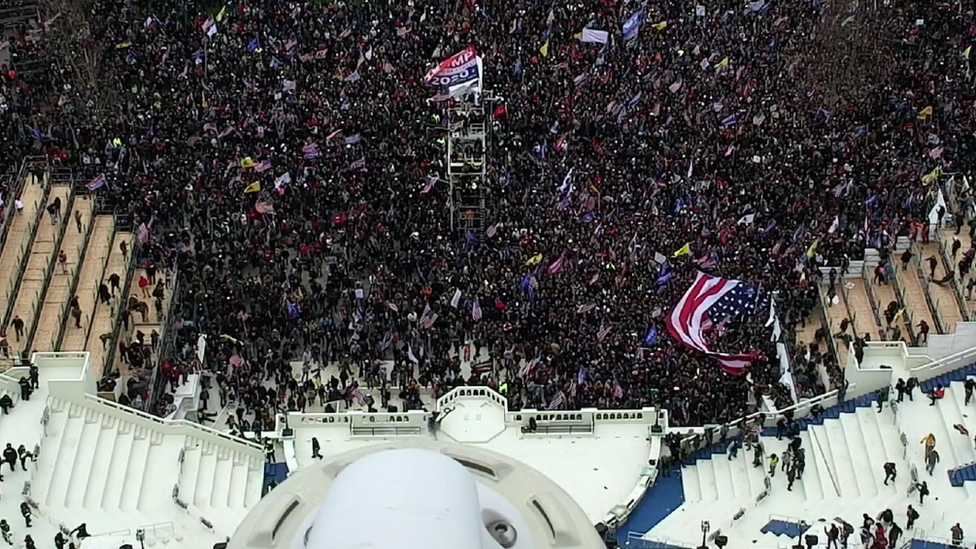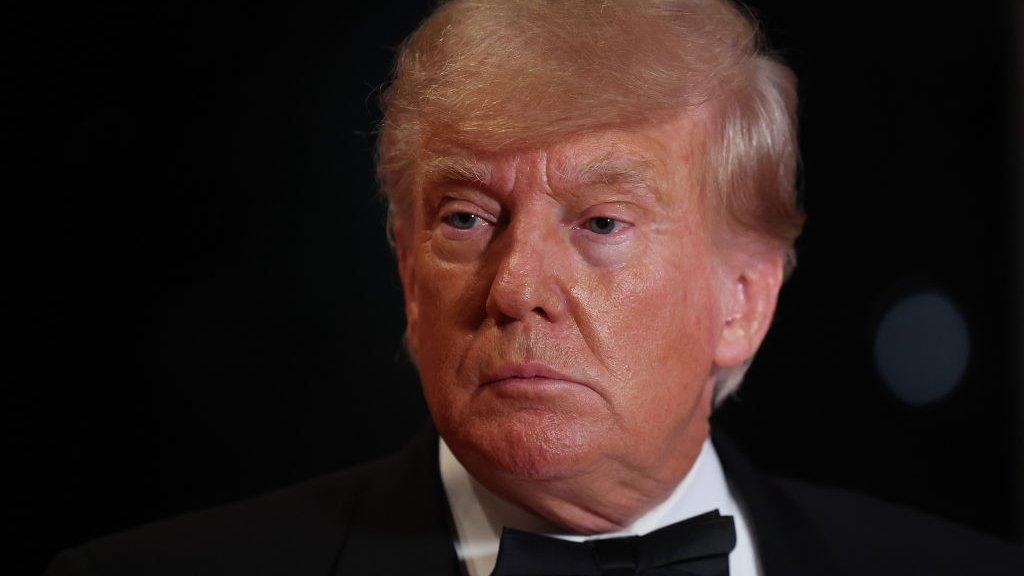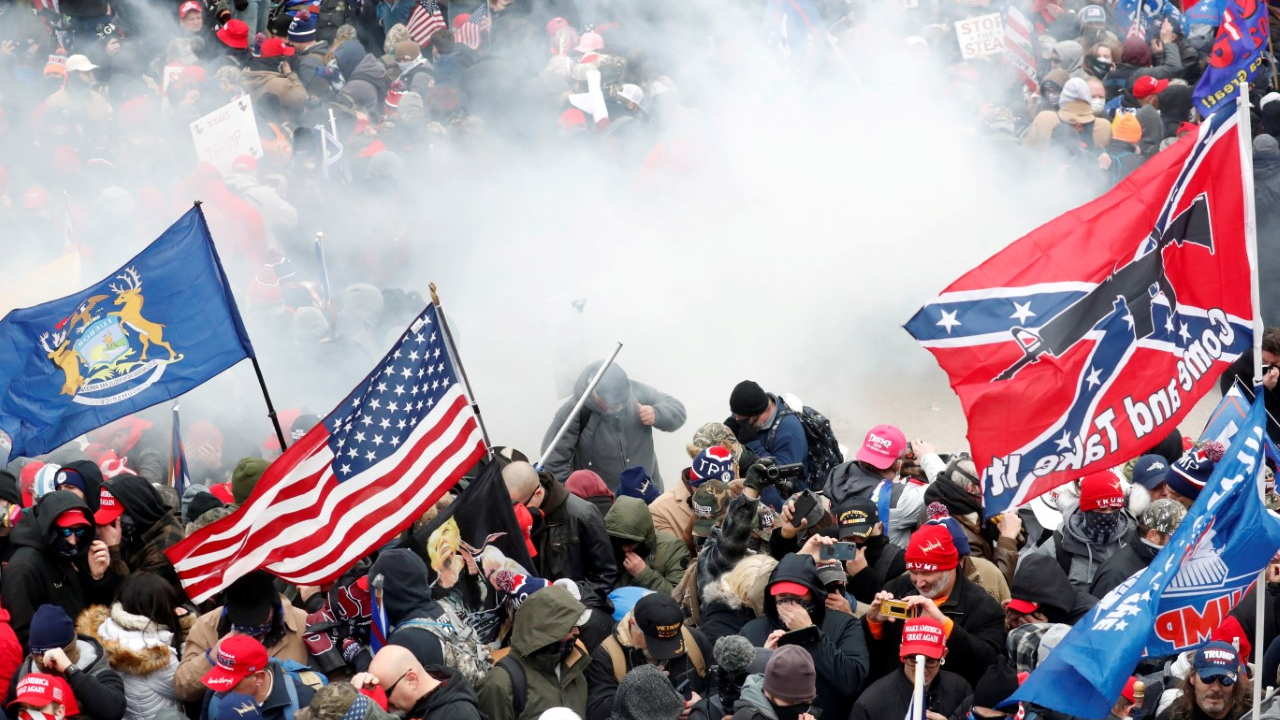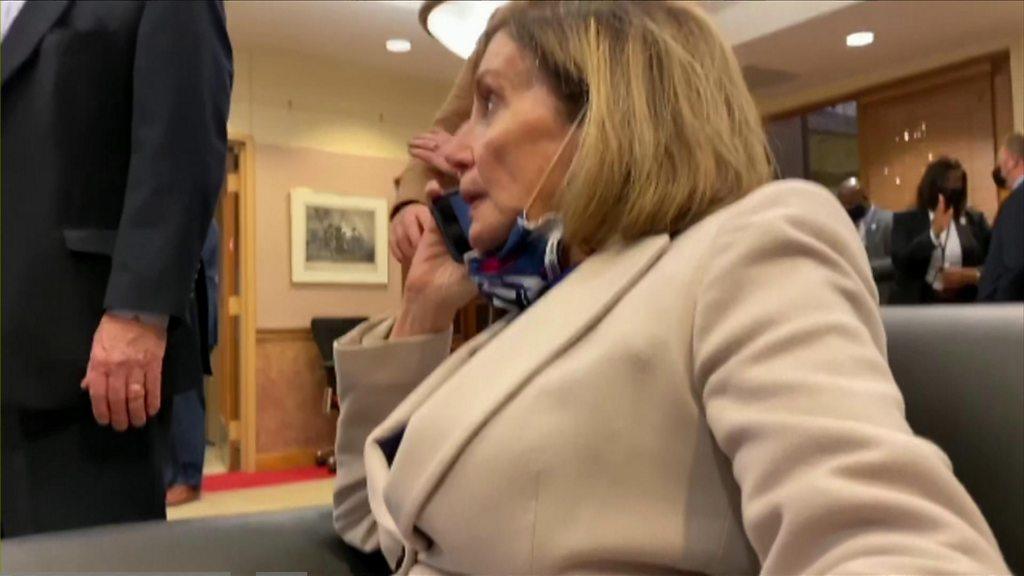US Capitol riot tip-offs were ignored, government watchdog finds
- Published

A new report highlights failures in law enforcement co-operation
Failures in processing intelligence and sharing tip-offs hampered police efforts to prevent the storming of the US Capitol in January 2021, a report, external by a US government watchdog has found.
The Government Accountability Office (GAO) found shortcomings by federal and local law enforcement agencies.
It said there was "publicly available information" about "potential violence planned for that day".
Despite this, Capitol Police prepared for a non-violent rally, the GAO said.
The 6 January riot saw more than 2,000 people enter the US Capitol as lawmakers certified the results of the 2020 election.
The riots led to the biggest police investigation in US history with more than 960 people accused of criminal offences.
One woman was fatally shot during the riots by a police officer. Three others who were on Capitol grounds that day died from natural causes.
Failure to communicate
The GAO, which audits and evaluates other government agencies on behalf of Congress, said the agencies responsible for security on the day often failed to communicate with each other.
It said the rally that preceded the riots was not designated a "national special security event" by Capitol Police, which would have resulted in increased security measures.
Along with the Capitol Police, who patrol congressional buildings, the Federal Bureau of Investigation (FBI) and the Department of Homeland Security (DHS) were responsible for gathering intelligence and investigating the riot, the GAO said.
A number of other state, local and federal agencies were also picking up tips.
But despite a range of threats and intelligence, investigators failed to anticipate the raid on the congressional building, the GAO report found.
It said the FBI "did not process all relevant information related to potential violence".
For instance, FBI agents in San Antonio, Texas, received 45 emails regarding "counterterrorism threats" from Parler, a social media platform popular at the time with supporters of former President Donald Trump and right-wing activists.
But the FBI only looked into nine of these, the report said.
Capitol Police Officer Harry Dunn was traumatised by the riot
The GAO report criticised a number of agencies for failing to adequately keep track of tips and share them with other agencies.
In addition, lower-ranking Capitol Police officers "did not receive adequate guidance and warnings about threats of violence".
Investigators were also affected by their previous experiences with high-profile protests, with some staff at the Department of Homeland Security said to be hesitant to report information.
The GAO report made a number of recommendations, external about the gathering and sharing of intelligence that it said had been largely accepted by the law enforcement agencies.
In a letter, Department of Justice official Larissa Knapp said the FBI would "address the recommendations in the GAO's report".
"Our goal is always to disrupt and stay ahead of the threat, and we are constantly trying to learn and evaluate what we could have done better or differently," she wrote.
But she said "the FBI was not aware of actionable intelligence indicating that a large mob would storm the Capitol building".
Related topics
- Published7 January 2023

- Published19 December 2022

- Published13 October 2022
